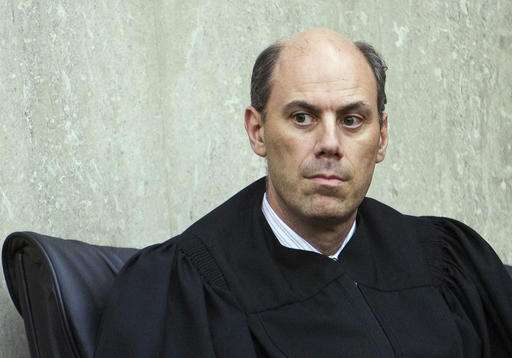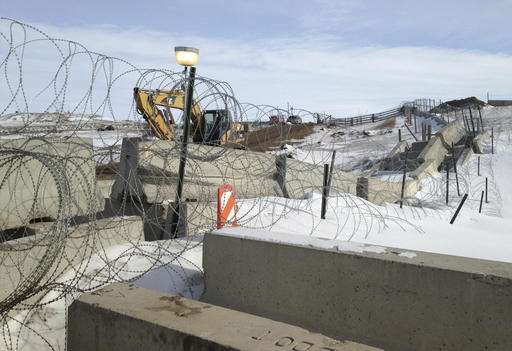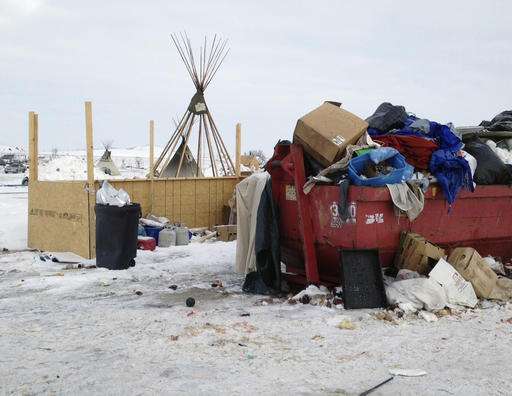Judge to hear arguments on Dakota Access pipeline work

Two American Indian tribes have asked a federal judge to stop construction of the last stretch of the four-state Dakota Access pipeline, adding a religious freedom component to their argument that it would endanger their cultural sites and water supply.
U.S. District Judge James Boasberg in Washington, D.C., is scheduled to hear arguments Monday afternoon.
The Standing Rock and Cheyenne River Sioux have asked for a temporary restraining order that would halt work on the disputed section of pipeline until their lawsuit seeking to stop it is resolved.
Texas-based Energy Transfer Partners received final approval from the Army last week to lay pipe under a Missouri River reservoir in North Dakota and complete the 1,200-mile pipeline, which would move North Dakota oil to a shipping point in Illinois. Drilling work began immediately under Lake Oahe, which is the water source for both tribes.
The tribes in a lawsuit filed last summer argue the pipeline threatens their drinking water and cultural sites. They now also argue that it would threaten their right to practice the Sioux religion, which they say requires clean water.
"The Corps has authorized activities under Lake Oahe that will substantially burden the tribe's free exercise of religious rituals that depend on the purity of water from the river," Standing Rock attorney Jan Hasselman said in court documents, referring to the Army Corps of Engineers.

The company's attorneys filed court documents early Monday urging Boasberg to reject the tribes' request, calling the new religious freedom argument "exceedingly tardy," ''not construction-related" and a "last-minute delay tactic."
"Dakota Access has the greatest respect for the religious beliefs and traditions of (tribes). The emergency relief sought here simply is not necessary to protect the exercise of those beliefs or preserve those traditions," wrote William Scherman, an attorney for the company.
The Corps also filed court documents Monday arguing that a work stoppage isn't warranted, saying the tribes will have plenty of time to make their case before oil flows through the pipeline.
Work under Lake Oahe had been held up in the courts until President Donald Trump last month instructed the Army Corps of Engineers to advance construction. The Army is involved because its engineering branch manages the river and its system of hydroelectric dams, which is owned by the federal government.

The drilling work is expected to take about two months. The full pipeline system could be operational within three months.
Energy Transfer Partners maintains that the pipeline is safe and disputes that cultural sites have been affected. But an encampment near the construction in southern North Dakota drew thousands of protesters last year in support of the tribes, leading to occasional clashes with law enforcement and nearly 700 arrests. The camp has thinned to fewer than 300 people, but law enforcement officers continue to maintain a presence in the area.
© 2017 The Associated Press. All rights reserved.



















